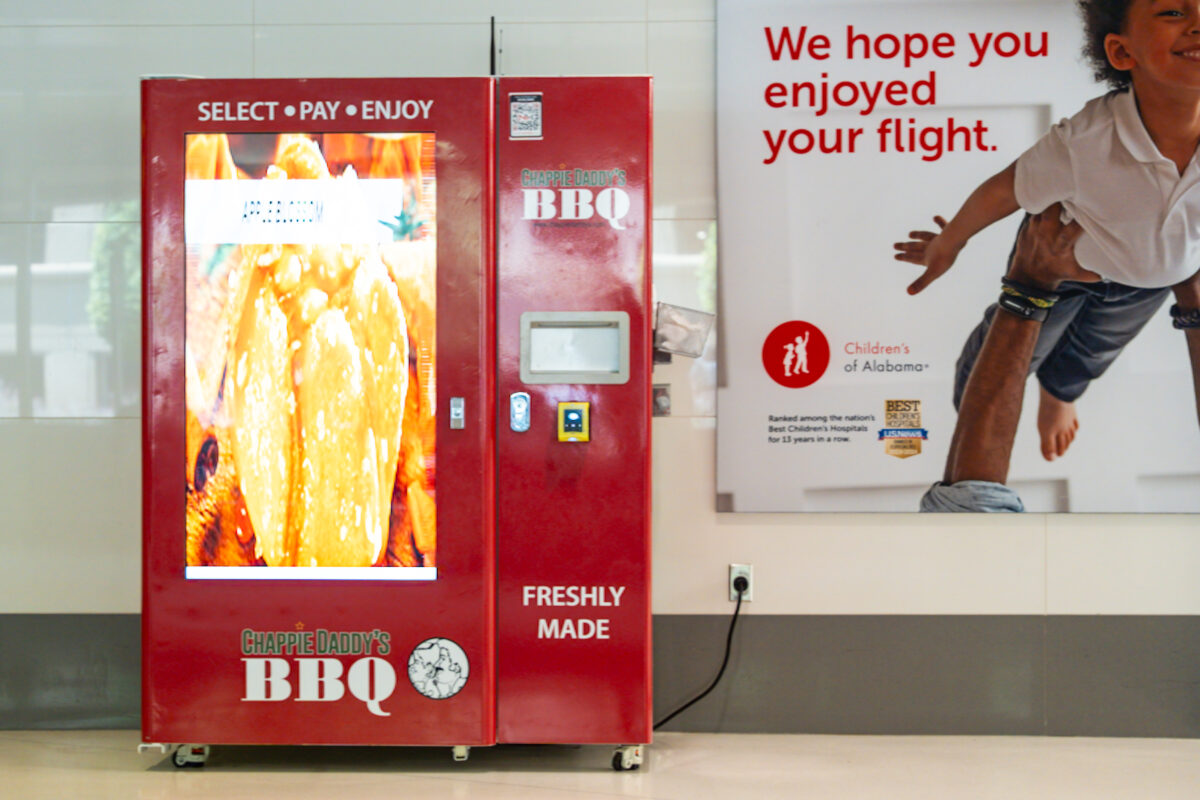Learn how one Birminghamian with multiple sclerosis is helping others
Reading time: 6 minutes
Sponsored

You may have heard of Multiple Sclerosis, but have you ever wondered what it’s like to live with it? Here’s a peek into the life of one Birmingham local whose influencing others through her MS story and doing big things for the National MS Society.
Meet Jennifer Adams

Jennifer Adams is a Birmingham local and Digital Media Manager at Encompass Health. On a typical day you will find her doing yoga or in the kitchen cooking up something yummy. But there’s much more to this young, active woman.
It was in May 2020, in the middle of the COVID-19 pandemic shutdown that Jennifer began experiencing unusual symptoms. She had numbness in her feet and legs, vertigo, muscle tightness and spasticity and vision changes.
While at first she assumed it was a pinched nerve or maybe the side effects of working from home in the COVID-19 lockdown, after several weeks without relief, she knew it was time to seek medical attention.
After speaking with her doctor, testing and a video Telehealth call, she was diagnosed with Relapsing Remitting Multiple Sclerosis.
There are two main types of MS—Relapsing Remitting and Primary Progressive MS. Here’s the difference between the two:
Relapsing Remitting MS
- Affects 85% of MS patients.
- Characterized by clearly defined attacks of new or increasing neurological symptoms. These attacks are followed by periods of partial or complete recovery (remissions).
Primary Progressive MS
- Affects about 15% of MS patients.
- Patients experience a steady decline in neurological function without relapses from the onset of symptoms.
MS + the Society Behind It

If you don’t know much about MS, you aren’t alone. Before her diagnosis, Jennifer didn’t know much about it either.
“Like many others, I really didn’t know much about MS before being diagnosed. I was shocked to learn that about 80% of people I told knew someone with MS.”
Here are some things to know:
- Nearly one million people in the US are living with MS.
- It’s an autoimmune disease which causes the body’s immune system to attack its own tissues.
- It mainly affects the central nervous system.
- It affects women more than men.
- It begins between the ages of 20 + 40.
- It causes visual disturbances, muscle weakness, trouble with coordination + balance, thinking and memory problems, etc.
The National MS Society (NMSS) was founded 75 years ago to help those affected by this life-altering disease. Through funding research, centralizing info, providing resources or helping people live well with MS, NMSS strives to see a world free of MS.
“This is MS.”
Jennifer has a unique and memorable explanation of how MS works. First, as an autoimmune disease, the body attacks the protective covering of its nerves in the brain and spinal cord. After the attack subsides, the body heals its nerves with scar tissue.
Unfortunately, the body’s way of healing itself with scar tissue is actually what causes nerve signals to become choppy and inefficient. This causes the main symptoms of MS.
“Think of it as a frayed computer cord. Sometimes you can have a frayed cord with no issues, sometimes you have to wiggle it to work, and sometimes it stops working completely. This is MS.”
A Day-to-Day Look
After learning so much from Jennifer about MS, I was curious to know what a day in her life with MS looks like. I didn’t want to pry, of course, but Jennifer was an open book and so happy to be able to share her story. While she told me her day-to-day symptoms as of right now are mild and invisible to others, like numbness, fatigue, muscle aches and spasticity, she was very adamant about telling me she doesn’t want to downplay the severity of MS.
“There are hundreds of thousands of people living with MS who are not that lucky who rely on mobility aids to get around and require a full-time caregiver to help with daily tasks. The hardest part of MS is the unknown. I do not know when my next flare will come and if it will bring any new permanent symptoms with it.”
She also informed me that a person’s symptoms of MS are determined by the placement of their sclerosis or lesions on their brain and spinal cord and how their body can compensate.
“For this reason, a lot of people call MS a snowflake disease. No two people have the same symptoms or progression.”
A Diagnosis with Some Positive Results

While Jennifer may have received life-changing news only a little more than a year ago, she has turned her diagnosis into something positive. Through the National MS Society—Alabama, Louisiana and Mississippi Chapter, Jennifer has had many opportunities to share her story, spread awareness in the Birmingham community and help raise much-needed funds to end MS.
This year, for example, she was nominated to participate in the MS Leadership Challenge, a competition among local aspiring and seasoned leaders to raise funds for the National MS Society, give back to a great cause and change the world for everyone affected by MS.
With the support of friends, family and coworkers, Jennifer was able to raise $7,200 and be named the 2021 Valedictorian. This means she was the top fundraiser out of all participants who took part in the Leadership Challenge. Learn more about the MS Leadership Challenge and the top fundraisers who rocked it in 2021.
Optimism Through Clinical Trials
Another thing that stood out to me about Jennifer is that she’s a big advocate for MS clinical trials. Currently, she’s participated in four trials and has also done one-one-on interviews, surveys and test running programs.
Jennifer said participating in clinical trials has helped her remain optimistic.
“Participating in research studies today is my way to pay it forward but also thank the thousands of MS warriors who participated before me.”
What advice does Jennifer have for someone experiencing MS symptoms?
“Listen to your body and don’t blow off the small symptoms. No symptom is too fleeting or small. You are your best advocate. The best thing you can do is catch it as early as possible.”
Make a Difference
Want to join the National MS Society in their fight to stop MS? Get involved or donate.
To learn more about the National MS Society, visit their website and follow them on Facebook, Instagram, LinkedIn and Twitter.
Sponsored by:



